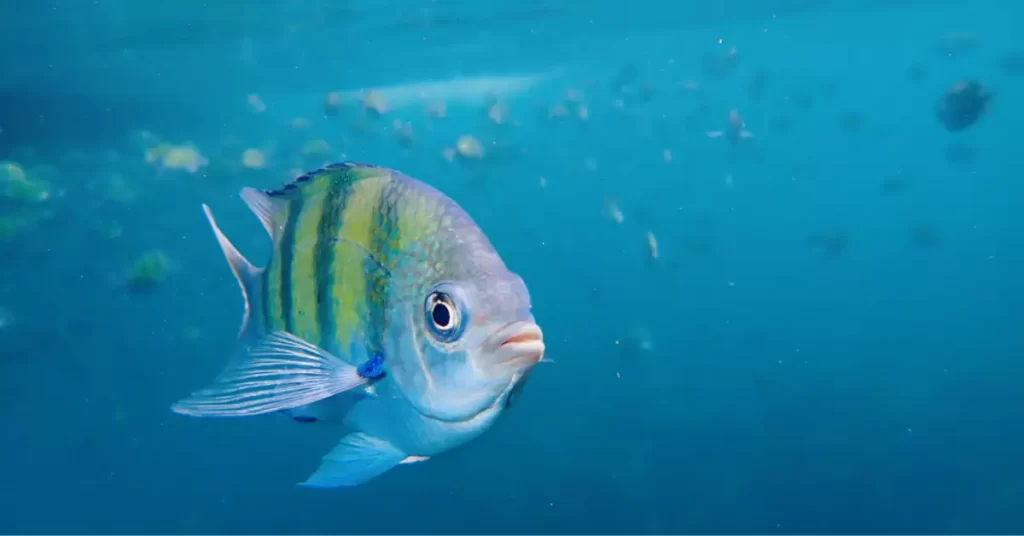Rabies is a terrifying and deadly disease that affects many mammals around the world. But can fish get rabies?
This question has sparked curiosity and concern among pet owners, fishermen, and the general public alike.
In this comprehensive article, we will delve deep into the topic, explore the nature of rabies, and examine the possibility of fish contracting this disease.
So let’s dive in and separate the facts from fiction.
Understanding Rabies
What are Rabies?
Rabies is a deadly viral disease that primarily affects mammals, including humans. It is caused by the rabies virus, which is part of the Lyssavirus genus in the Rhabdoviridae family.
The virus attacks the central nervous system (CNS), eventually leading to severe inflammation of the brain and spinal cord.
Symptoms of rabies may include fever, headache, muscle weakness, paralysis, hydrophobia, hallucinations, and aggression. If left untreated, rabies is almost always fatal.
Transmission of Rabies
Rabies is mainly transmitted through the bite or scratch of an infected animal.
The virus is present in the saliva and nervous tissue of a rabid animal and can easily enter the body through broken skin.
Most commonly, rabies is transmitted through the bites of rabid mammals such as dogs, bats, raccoons, skunks, and foxes.
The Immune System of Fish
Fish have a unique immune system that is both adaptive and innate.
The innate immune system provides an immediate but non-specific response to pathogens, while the adaptive immune system offers a specific and more targeted defense against particular pathogens.
This dual-layered defense system helps fish fend off a wide range of pathogens, including bacteria, viruses, and parasites.
Can Fish Contract Rabies?
The simple answer is no, fish cannot contract rabies. Rabies is a mammal-specific disease, and fish do not fall under this category.
Furthermore, the rabies virus cannot survive in water for extended periods, making it highly unlikely for fish to come into contact with the virus.
There is also a lack of scientific evidence supporting the notion that fish can contract or transmit rabies.
The unique immune system of fish and their aquatic environment provides a natural barrier against rabies transmission.

Common Diseases in Fish
While fish cannot contract rabies, they can still suffer from various diseases. Some common fish diseases include:
- Ichthyophthirius multifiliis (Ich): A parasitic infection that causes white spots on the skin, gills, and fins of fish.
- Columnaris: A bacterial infection that leads to skin ulcers, fin rot, and mouth fungus.
- Fin rot: A bacterial or fungal infection that causes the decay and discoloration of fish fins.
- Dropsy: A bacterial infection that results in fluid accumulation, causing the fish to appear bloated and have raised scales.
- Swim bladder disease: A disorder affecting the fish’s swim bladder, leading to abnormal swimming patterns or difficulty maintaining buoyancy.
Preventing Disease in Fish
To keep your fish healthy and prevent diseases, it is essential to maintain proper water quality, provide a well-balanced diet, and minimize stress. Some tips for preventing fish diseases include:
- Regularly test and maintain water parameters, such as pH, ammonia, nitrite, and nitrate levels.
- Conduct partial water changes regularly to maintain water quality.
- Quarantine new fish before adding them to an established tank to prevent the introduction of pathogens.
- Provide a varied diet, including high-quality fish food and supplements.
- Maintain proper water temperature and filtration systems to keep the aquarium environment stable.
Rabies in Aquatic Mammals
While fish are not susceptible to rabies, some aquatic mammals, such as seals and sea otters, can contract the disease.
However, cases of rabies in these animals are rare. It is essential to keep a safe distance from wild aquatic mammals and report any unusual behavior to local wildlife authorities.
What to Do if You Suspect Rabies in a Pet
If you suspect that your pet, such as a dog or cat, has been exposed to rabies, immediately contact your veterinarian for advice.
Early intervention is crucial in managing rabies, as the disease is almost always fatal once symptoms appear.
Your veterinarian will guide you on the necessary steps to take, such as quarantine, vaccination, and reporting the incident to local health authorities.
FAQs
Can fish transmit rabies to humans?
No, fish cannot transmit rabies to humans. Rabies is a mammal-specific disease and is not known to affect fish.
How long can the rabies virus survive in water?
The rabies virus does not survive in water for extended periods. In general, the virus is sensitive to environmental factors such as sunlight and temperature, which can quickly inactivate it.
Is it safe to eat fish from a body of water where rabid animals have been found?
Yes, it is generally safe to eat fish from a body of water where rabid animals have been found, as long as the fish is properly cooked.
Cooking fish at a temperature of at least 145°F (63°C) for a minimum of 15 seconds is sufficient to kill the rabies virus.
Conclusion
In summary, fish cannot contract or transmit rabies. Rabies is a mammal-specific disease, and the unique immune system of fish and their aquatic environment provides natural barriers against the virus.
It is essential to maintain proper care for your fish to prevent other common diseases and ensure their health and well-being.